What will you learn
A Level English Literature
The A Level English Literature course builds on students’ prior knowledge from GCSE English and to provides a broad and deep understanding of literature written in English. The course is designed as a journey through literature both chronologically and geographically. We start with pre-1900 British literature, move onto 20th century American literature, and end with world literature and contemporary British literature. As with the GCSE course, debate and oracy are embedded into the course through a strong focus on discussion and articulation of ideas in lessons. This is a core aspect of our goal to develop students’ oracy and their confidence in participating in cultural conversations and debate.
The course begins with the Shakespeare text because all students have studied a Shakespeare text at GCSE. Most of our incoming Year 12 students are from different schools, so this provides a common foundation on which to build, and teachers use links the Shakespearean tragedies studied at GCSE to connect new knowledge to prior knowledge. We begin with studying authors methods, context, character, dramatic methods and structure. Then we introduce new knowledge and skills for A Level: critical perspectives and argument. Simultaneously, students begin the Unseen Poetry unit with a review of poetic methods and an introduction to British pre-1900 literary periods. All students will have studied poetry at GCSE, so this provides a common foundation through the review of poetic methods while introducing new knowledge of literary periods.
Next students study the pre-1900 British poetry anthology, developing their understanding of literary periods and styles in more depth. At the same time, students start to study The Great Gatsby. This is studied next as it is thematically linked to Othello around the theme of love. The Great Gatsby is chosen as the prose text rather than a 20th century British novel to provide more breadth to students’ knowledge of literature because students only study British literature at GCSE and American prose is a central part of a well-rounded literary education. There is a focus on prose as a form when studying this text because many students will not have studied a modern novel at GCSE. Comparative skills are also introduced at this point, which is a key assessment objective of the A level course. After this, we return to Unseen Poetry and apply the knowledge of literary contexts and methods to a variety of poetry from the Renaissance to today.
Next, students study A Streetcar Named Desire. This is the first text set during the post-war period, and it is studied first because it is the oldest to give students a understanding of how literature changes over time in response to its context and because it links to The Great Gatsby through the 20th century context, allowing students to connect new knowledge to prior knowledge. At the end of Year 12, students begin studying the first text for their coursework/NEA component. This is placed here so students can choose their own comparative second text before the end of year and read over the summer and also because it builds on knowledge of Romanticism and prose from the units on pre-1900 poetry and The Great Gatsby.
At the start of Year 13, lessons are divided between working on the coursework essay in lessons and studying The God of Small Things which is in a comparative unit with A Streetcar Named Desire. There is a returned focus on prose methods here, which complements the NEA which is a comparison of two novels. A completed draft of the coursework essay is completed by the end of the Autumn term.
In the Spring of Year 13, students simultaneously study the final two units: Unseen Prose and the poetry collection Feminine Gospels. Unseen Prose builds on their study of modern context (during the A Streetcar Named Desire and The God of Small Things section) and their study of prose through the end of Year 12 and the start of Year 13. Students practice applying this knowledge to the interpretation of unseen prose extracts. Knowledge of poetic form and methods is revisited in the study of Feminine Gospels, which also builds on the contextual knowledge of women in literature and feminist critical perspectives, which are threads throughout the A level course.
When will we revisit knowledge so it ‘sticks’?
When will we enable students who have forgotten or not understood prior learning to revisit it?
As with the GCSE course, students complete regular recall and retrieval tasks that require them to revisit prior knowledge. Weekly homework will also include prior knowledge so it sticks. The nature of the literature course is very synoptic with repeated themes, context, and methods running as threads throughout the texts, which allows students to constantly revisit knowledge.
How you are assessed and how we help you improve your work
Both Courses
When will the assessment opportunities be and in what format?
When will we give the students the opportunity to respond to assessment feedback and improve work?
At the end of each literature text unit, students will compete a timed exam-style essay in lesson. This will be in the classroom in exam conditions. For GCSE students, these are interleaved assessments of language paper questions during Year 10. In Year 11 and Year 13, students sit mock exams in November and in March.
After assessments, students will receive written feedback, some individual and some whole class, in a feedback lesson and will improve their work in the lesson, usually re-writing a section of their essay/response to apply the feedback.
How will we ensure that the needs of SEND learners and high achieving learners are met?
Clear instructions, chunking and modelling are all embedded into teaching to meet the needs of SEND learners. A staple of lessons is teacher-led questioning and discussion of ideas. Teachers use higher-level questioning to stretch and challenge high achieving learners to develop their thinking to a more abstract, conceptual level. During writing tasks, teachers circulate and live mark students’ work and during this process, teachers provide individualised feedback to stretch these students and also to provide additional support to SEND learners.










